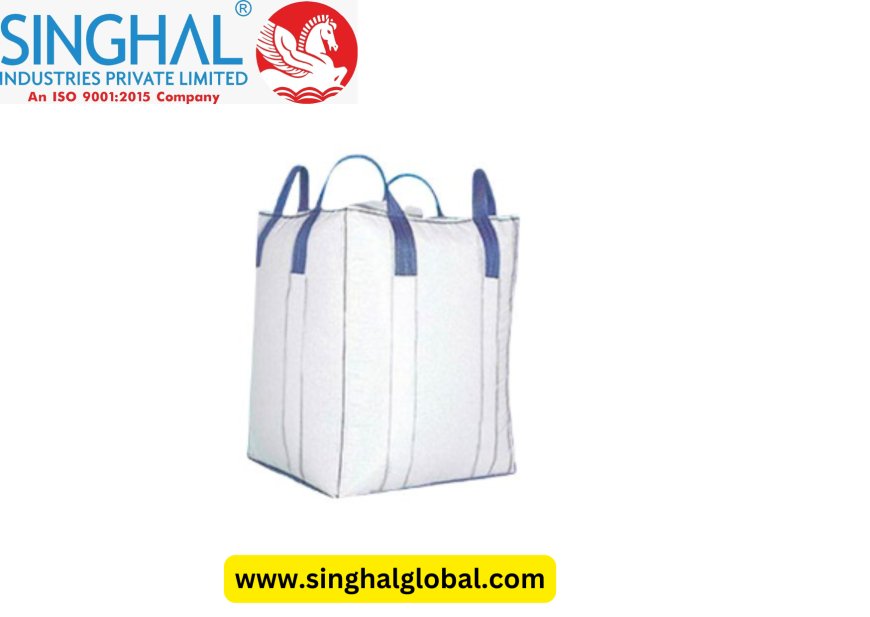Understanding Jumbo Bags: The Versatile Solution for Bulk Packaging

In today’s fast-paced world, businesses across various industries seek efficient and cost-effective packaging solutions. One such versatile option is the jumbo bag, commonly referred to as a jumbo plastic bag. These bags have become increasingly popular for their ability to hold a large volume of products, making them ideal for transporting goods in bulk. This article explores the benefits of jumbo bags, their applications, pricing factors, and the overall value they bring to different sectors.
What is a Jumbo Bag?
A jumbo bag is a type of flexible intermediate bulk container (FIBC) designed for storing and transporting large quantities of dry bulk materials. Made from durable materials such as woven polypropylene, jumbo bags can typically hold anywhere from 500 kg to 2000 kg of product, depending on their design and specifications. These bags are not only robust but also lightweight, making them easy to handle and transport.
The construction of a jumbo plastic bag ensures that it can withstand the rigors of handling, transportation, and storage. The use of UV-stabilized materials helps prevent degradation from sunlight, while anti-static properties can be incorporated for added safety when handling flammable materials. This makes jumbo bags suitable for various industries, including agriculture, construction, chemicals, and food processing.
Advantages of Using Jumbo Bags
Jumbo bags offer numerous benefits that make them a preferred choice for bulk packaging. One of the primary advantages is their high capacity, allowing businesses to minimize the number of containers required for transportation. This can lead to significant cost savings on logistics, as fewer trips mean reduced transportation expenses.
Additionally, the strength and durability of Jumbo bag Plastic ensure that products remain secure during transit. They are designed to resist tears, punctures, and abrasions, safeguarding the contents from damage. The ability to stack jumbo bags efficiently also optimizes storage space, allowing for better inventory management.
Another significant advantage is their eco-friendliness. Many manufacturers produce jumbo bags from recyclable materials, making them a sustainable option for businesses looking to reduce their environmental impact. After their initial use, these bags can often be reused or recycled, contributing to a circular economy.
Applications of Jumbo Bags
Jumbo bags are incredibly versatile and can be used in various applications. In the agricultural sector, they are commonly used for storing and transporting grains, seeds, and fertilizers. Their breathable design helps prevent moisture buildup, which can lead to spoilage or degradation of the stored products.
In the construction industry, Jumbo Plastic bag serve as an effective solution for handling and transporting bulk materials like sand, gravel, and cement. Their strength allows them to hold heavy loads without compromising structural integrity, making them ideal for construction sites.
Furthermore, jumbo bags are widely used in the chemical and pharmaceutical industries for storing powders, granules, and other bulk materials. The customization options available for jumbo bags, such as adding liners or specific closures, enhance their suitability for different applications.
In the food industry, companies often utilize jumbo bags for packaging items like sugar, flour, and rice. Ensuring compliance with food safety standards, these bags can be designed to meet regulatory requirements while still providing the durability needed for bulk storage and transport.
Understanding Jumbo Bag Pricing
When considering Jumbo bag Price for your business, it is essential to understand the factors that influence jumbo bag price. The cost of these bags can vary based on several elements, including the materials used, size, design, and any custom features. For instance, a basic jumbo plastic bag without additional features will typically cost less than a customized bag with specific dimensions or special coatings.
The quantity ordered can also impact pricing. Many suppliers offer discounts for bulk purchases, making it more economical to order larger quantities. Additionally, the geographical location of the supplier and transportation costs may affect the overall price, especially for businesses located far from manufacturing facilities.
While it can be tempting to choose the cheapest option, it is crucial to consider the quality and durability of the jumbo bags. Investing in higher-quality bags can lead to long-term savings by reducing the likelihood of product damage and minimizing the need for replacements.
Conclusion
Jumbo bags are an invaluable packaging solution that offers numerous benefits across various industries. Their high capacity, durability, and versatility make them an excellent choice for businesses looking to streamline their operations and reduce costs. By understanding the applications and pricing factors associated with jumbo bags, companies can make informed decisions that align with their needs and sustainability goals.
Frequently Asked Questions
1. What materials are jumbo bags made from?
Jumbo bags are typically made from woven polypropylene, which provides strength and durability. They can also include additional features such as UV stabilization and anti-static properties, depending on the application requirements.
2. How much weight can a jumbo plastic bag hold?
Jumbo plastic bags can generally hold between 500 kg to 2000 kg of products, depending on their design and specifications. This high capacity makes them ideal for transporting bulk materials in various industries.
3. Are jumbo bags reusable or recyclable?
Yes, many jumbo bags are made from recyclable materials and can be reused for multiple applications. After their initial use, they can often be recycled, contributing to a more sustainable packaging solution.
What's Your Reaction?























